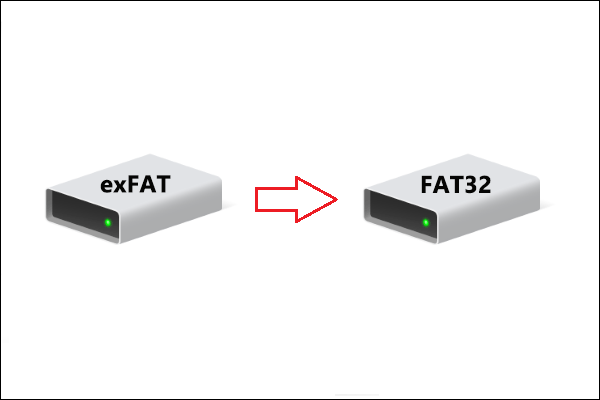exFAT file system is popular with most devices especially with portable storage devices. It has many improvements based on NTFS and its own features. Recently, the news that Microsoft publishes exFAT specs to woo Linux sparkled a heated discussion. In MiniTool, this post will show you what Microsoft is thinking of this issue and the current situation.
Introduction
As early as 2006, Microsoft introduced its first flash drive, SD card file system as well as exFAT (Extended File Allocation Table) as a follow-up to FAT32. So far, installing these drivers and cards on a Linux machine requires installing additional software.
The tech giant of Microsoft claimed that it will support adding exFAT file system into the Linux kernel. In addition, the firm also announced that the exFAT specification will become part of the open invention network Linux definition.
What is exFAT? exFAT is a file system that is widely used in portable storage devices such as USB flash drive and SD card. exFAT can be used for NTFS infeasible solutions because of data structure overhead but requires a larger file size limit than the standard FAT 32 file system (4 GB).
exFAT file system is the latest version of Microsoft FAT series. It is a simple and lightweight file system but it doesn’t have the flexibility of file systems such as NTFS.
To know more differences between NTFS and exFAT, please read this post: NTFS vs. FAT32 vs. exFAT – Differences and How to Format to
Microsoft Publishes exFAT Specs to Woo Linux
There is indeed a core competition between Microsoft and Linux, because the Linux community once thought that Microsoft was anti-open source. There’s no doubt that Microsoft has accepted open source. With the release of the Linux subsystem Linux, Linux itself has become part of Windows 10.
No wonder Microsoft further commented that once the code is accepted, it will benefit from “a defensive patent commitment from 3030+ members and licensees from OIN.”
Microsoft hopes that exFAT will be accepted at part of the Open Invention Network’s definitions of Linux as part of the rollout, which would be protected by additional patent when the code is used by third party members.
The exFAT specification released today is the first step of the Linux kernel that Microsoft hopes to include. The Windows giant said it will support the inclusion of exFAT in future versions of the Linux system definition released by the Open Invention Network (OIN). This means that the exFAT patent will be covered by the OIN patent non-aggression agreement.
The repsonisbility now lies in the Linux community. Though the previous opposition has been thawed by Satya Nadella under the management of Microsoft, there are still some Linux communities who believe that Microsoft is purely evil and may overturn these plans.
Linux can be used as the subsystem of Windows 10, which is unbelievable a few years ago. Therefore, some of the biggest Linux distros like Red Hat and Ubuntu are available in the Microsoft Store.
As for users who run Linux in Windows, adding exFAT is good news. The problem lies in whether the Linux community is willing to do antything good for Microsoft.


User Comments :